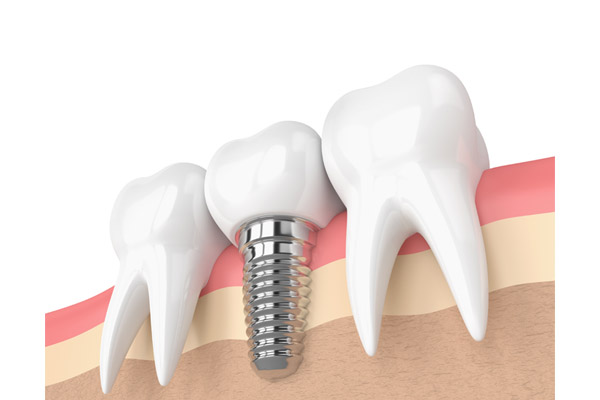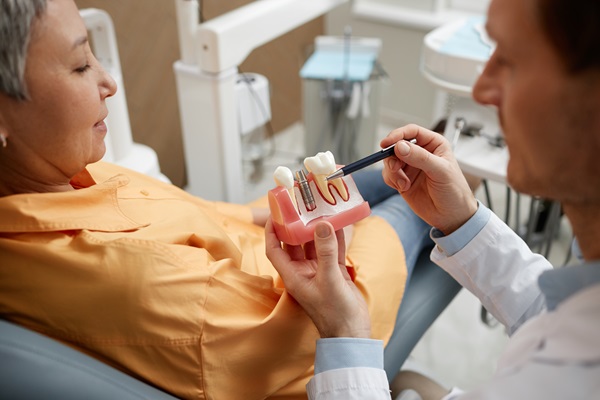Periodontal Disease: Bacteria, Plaque and Tartar

Periodontal disease is the result of bone and gum infections. It weakens the support of your teeth. The early stage is called gingivitis. Its more serious stage is periodontitis. Bacteria, plaque, and tartar are the main agents of this disease. If you want to know more about these causative agents of periodontal disease, here are the details.
Bacteria are the main cause
Good and bad bacteria are in the mouth. An unfavorable imbalance happens because of poor diet, lifestyle choices, and oral care. The larger number of bad bacteria in the mouth is the main cause of periodontal disease. These organisms infect the tissues around teeth. Inflammation signals the infection.
The longer bacteria stay on teeth, the higher the person’s risk of developing periodontal disease. Improper oral care leaves a large number of bacteria on teeth. Over time, bacteria form a collective biofilm. Another name for this is plaque. Thorough and correct daily brushing often removes plaque.
Improper oral care results in the thickening and hardening of plaque. Tartar is hardened plaque. It often collects along the gumline. Its presence makes brushing and flossing more challenging. Professional dental cleaning is the only way tartar can go away. Leaving tartar on teeth will increase a patient’s risk for periodontal disease.
The essentials of plaque
Plaque is always present in the mouth. This substance is sticky. It is a collection of bacteria forming on teeth while eating. Bacteria combine with starchy or sweet foods. These organisms consume these food particles and produce acids.
The bacterial acids corrode the protective enamel layer of teeth. Cavities form over time. The presence of plaque leads to periodontal disease as well. Plaque spreads and develops below the gumline.
It can reach the dental roots and jawbone. This degrades the bone support of teeth. Brushing after eating removes this layer of plaque. Failure to remove plaque results in its hardening.
The essentials of tartar
Poor daily oral care results in the hardening of plaque. The resulting substance is tartar. Preventing the formation of tartar is a priority. Removing as much plaque as possible every day prevents tartar from taking over teeth. Leaving plaque on teeth allows it to combine with the minerals present in saliva. The minerals harden the plaque and turn it into tartar or dental calculus.
Tartar can coat the exterior layer of the teeth. Like plaque, it can also spread and stay below the gumline. A periodontist would have to remove the tartar. This will prevent the onset or worsening of periodontal disease.
Gingivitis is the early stage of this oral condition. Swollen, red gums are immediate signs of gingivitis. Bleeding gums may or may not be present. Untreated gingivitis results in periodontitis, which involves gum recession. It also leads to loosened teeth. At this stage, the teeth may fall out.
Preventing periodontal disease
Gum disease can spread to the body and cause many health conditions. It is a good thing that this ailment is preventable. Working with the dentist can make the effort easier. Below are some of the effective ways to prevent periodontal disease:
- Flossing once each day can remove the food particles between teeth. It can help reach the areas that a toothbrush cannot.
- Being mindful of what one eats can help with good oral care as well. Drinking more water can rinse the mouth after every meal. Drinking more vitamin C-rich foods can help strengthen gum tissue.
- Lowering one’s risk for gum disease is also an ideal technique. Quitting smoking and drinking can prevent the onset of gum disease.
- Using an antibacterial mouthwash can dislodge any remaining plaque or food particles.
- Brushing two times every day for two minutes can remove food particles and plaque from the surfaces of teeth.
- Lowering stress levels can help prevent periodontal disease. Stress can cause jaw clenching and teeth grinding. This can put pressure on gums and teeth, making the individual more prone to periodontal disease. Stress can also weaken the immune system. This encourages the growth of more bacteria in the gums.
Understanding periodontal disease can help you prevent it
Bad bacteria are the root cause of dental infection. Removing them after meals is important to keep their numbers at bay. Doing so will prevent the formation of plaque and tartar. It can also save you from periodontal disease. Seeing your dentist for routine dental cleaning can help keep your teeth, gums, and jawbone healthy.
Are you considering getting a periodontal treatment in the Palm Beach Gardens area? Get more information at https://corderoperiodontics.com.
Check out what others are saying about our services on Yelp: Read our Yelp reviews.
Recent Posts
For many people, dental implants can be a permanent solution for dealing with lost or damaged teeth. This type of treatment is designed to last a lifetime. Once it is complete and healed, patients can enjoy a more beautiful smile without having to worry about any dietary changes, difficult home care, or unnatural-looking teeth.Dental implants…
Dental implants are permanent options for replacing missing teeth and repairing one's smile. Instead of contending with the annoying glue of dentures and the risk of them slipping out while talking, patients can enjoy dental devices that function like natural teeth by opting for dental implants. To determine if these are the right choices for…
A tooth extraction is a common dental procedure that involves removing a tooth from its socket in the jawbone. According to the American Dental Association, millions of tooth extractions are performed annually. This treatment is recommended when a tooth cannot be saved or if its presence threatens the patient's oral health. Tooth removal might seem…
One of the most popular restorations for missing teeth is dental implants. However, that does not mean that they are appropriate for every patient. Under certain circumstances, implants may be contraindicated. If you are interested in this treatment, you should discuss with your dentist whether you are a candidate.The implant procedure involves multiple steps.A rod…


